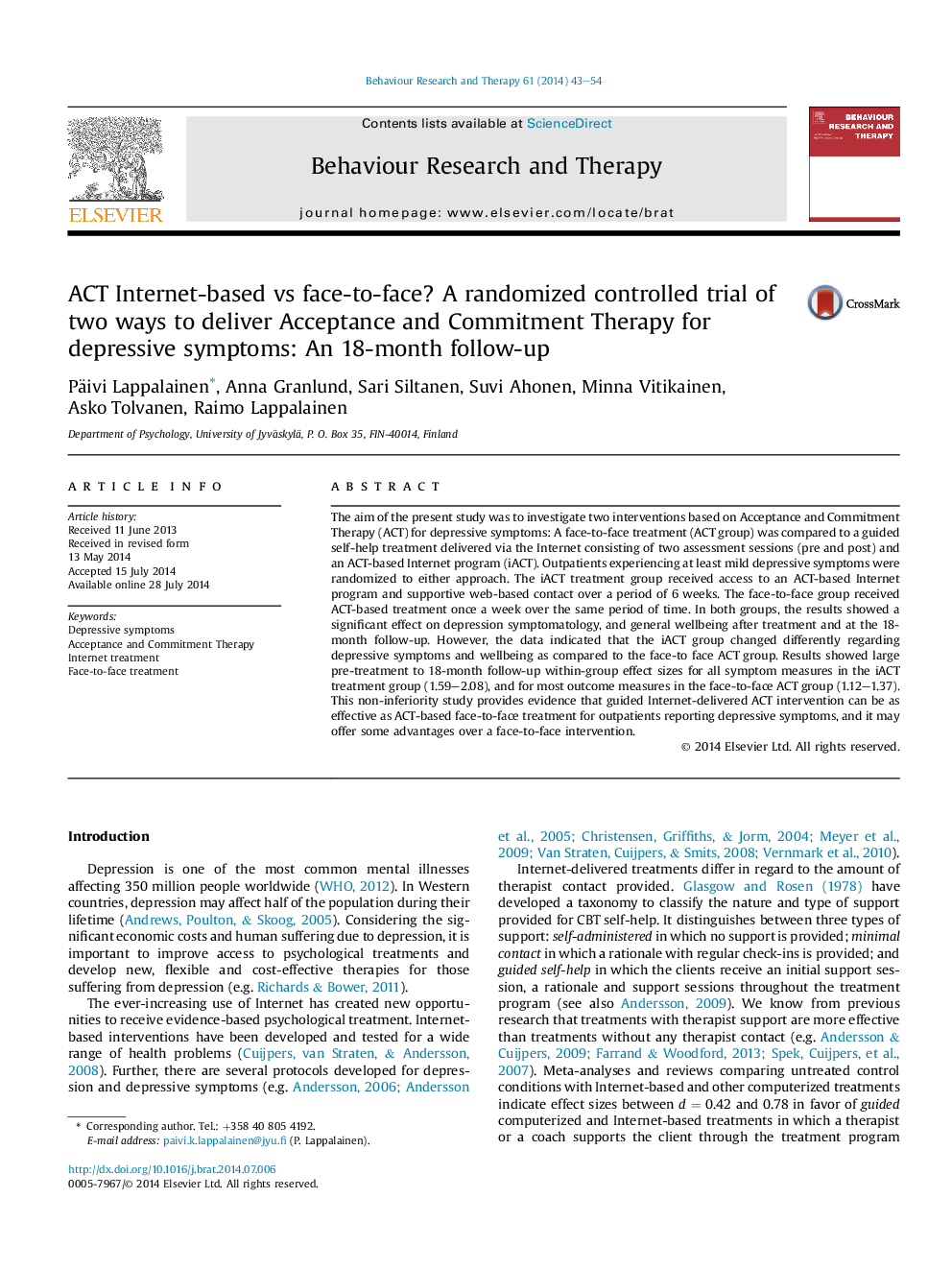| Article ID | Journal | Published Year | Pages | File Type |
|---|---|---|---|---|
| 901833 | Behaviour Research and Therapy | 2014 | 12 Pages |
•Internet-delivered and face-to-face delivered ACT for depression is investigated.•Both ways to deliver ACT show good results for depressive symptoms.•Internet-based ACT may have some benefits over a face-to-face intervention.
The aim of the present study was to investigate two interventions based on Acceptance and Commitment Therapy (ACT) for depressive symptoms: A face-to-face treatment (ACT group) was compared to a guided self-help treatment delivered via the Internet consisting of two assessment sessions (pre and post) and an ACT-based Internet program (iACT). Outpatients experiencing at least mild depressive symptoms were randomized to either approach. The iACT treatment group received access to an ACT-based Internet program and supportive web-based contact over a period of 6 weeks. The face-to-face group received ACT-based treatment once a week over the same period of time. In both groups, the results showed a significant effect on depression symptomatology, and general wellbeing after treatment and at the 18-month follow-up. However, the data indicated that the iACT group changed differently regarding depressive symptoms and wellbeing as compared to the face-to face ACT group. Results showed large pre-treatment to 18-month follow-up within-group effect sizes for all symptom measures in the iACT treatment group (1.59–2.08), and for most outcome measures in the face-to-face ACT group (1.12–1.37). This non-inferiority study provides evidence that guided Internet-delivered ACT intervention can be as effective as ACT-based face-to-face treatment for outpatients reporting depressive symptoms, and it may offer some advantages over a face-to-face intervention.
